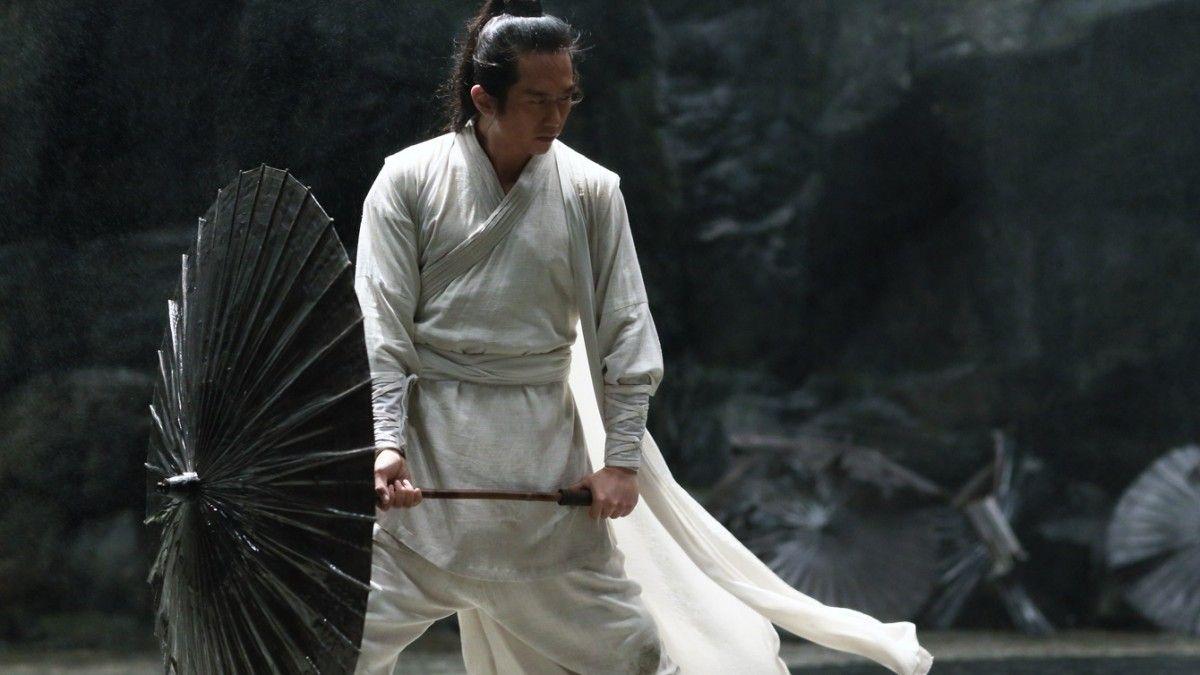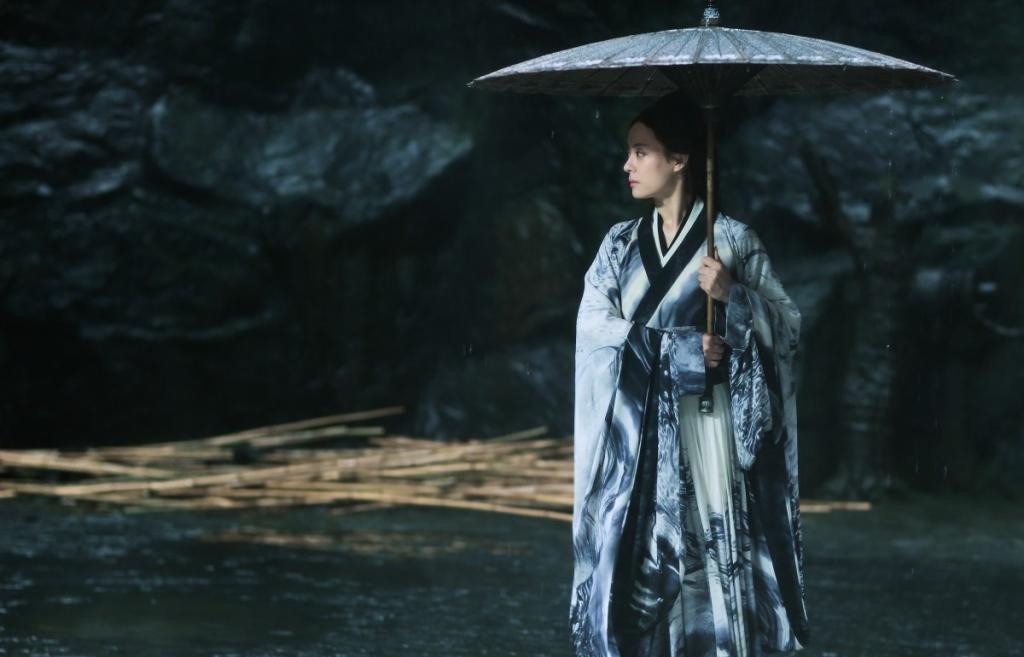
May 3 is gonna be a pretty stacked start of the weekend for regular moviegoers, and director Zhang Yimou’s latest success story, Shadow, will surely add to the pile. It’s certainly a redeeming effort following the director’s clumsy, albeit sizeable creature epic, The Great Wall, although you can certainly defer to its greater promise given all the current reviews that have run viral since its film festival run last year.
If you’re like me and have been gripped by Zhang’s artillery of storytelling and visionary caliber in grand feats like Hero, House Of Flying Daggers and Curse Of The Golden Flower, you believe that Shadow far from disappoints. Penned by Zhang and co-writer Wei Li, Shadow is based on the ancient folkloric “Three Kingdoms” saga, prefaced with the story defeat of Pei kingdom at the hands of Yan.
After losing Jing territory to the kingdom of Yan, Peiliang (Ryan Zheng), Pei’s eccentric, cavalier ruler has commit to peace between both kingdoms, but soon learns that his top general, Ziyu (Deng Chao), has reignited the rivalry between both kingdoms. Ziyu’s wife, the palace’s fortune teller, Madam Xiao’an (Sun Li), predicts a male-dominated millieu of conflict with seven days of rain until the oncoming battle.
Little does Peiliang know that Ziyu, whose real name is Jingzhou, is more than he claims to be, having long been hired to “shadow” the real commander, Ziyu (Deng Chao), who resides in a deep, cavernous dwelling under Pei palace, suffering from poor health and cared for by Xiao’an in secret. Not to be hindered by his ailing condition, Ziyu has been planning and plotting his recapture and ultimate conquest of Jing city, as well as his ursurpation to the throne.
Not only does that preparation include fooling the king by seamlessly looking and playing the role of Xiao’an’s husband and top Pei commander accordingly before him and the rest of the Pei court. In strenuous and paining fashion, achieveing this also means training Jingzhou to beat Yang (Hu Jun), the Yan general who delivered Ziyi’s near fatal blow, in a fair three-round duel of weapons, and it is here where Xiao’an consultation proves more than pivotal.
As for the king, who has since stripped the assuming Ziyi of his rank, armor and status down to a mere commoner, he is still on the hook to ascertain peace with the Yan kingdom. He’s done so by resolving to marrying off his reasonably reluctant sister, the palace’s princess, Qingping (Guan Xiaotong), to Yang’s son, Prince Ping (Leo Wu), after accepting Ping’s own dagger as a gift, and the moment proves to be a major climatic a turning point with Pei’s military captain, Tian (Wang Qianyuan), relinquishing himself of his own duties as well.
Doused in a worldly watercolor mix of blacks, whites, rapturous shades of grey with a tone carried in poetic, visual fluidity, sound and grace, Shadow continues onward as a nimbly-constructed feast for the eyes. Zhang combines an artistic gathering of taut drama with a stoic tale of romance amid war, and toxic political skullduggery, packaged with his usual use of inventive weapons and grandscale battle formations.
The ambition is even more prevalent with Zhang’s lead actor, Deng Chao, who reportedly took on a crash diet in a period of two months in between tackling the dual roles of a young, stacked Jingzhou, and a decrepit, sickly Ziyi. Deng’s resilient performance aptly contributes as part and parcel to what kind of movie Shadow aims to be through Zhang’s inventive film mechanics and signature style.
There are countless characteristics to admire about Shadow, such that can be drawn from its immersive visage and collective, allegoric reflection on patriarchy through narrative illustration, to its mesmerising set deign and pieces and sheer, exquisite action showcasing. Action director “Dee Dee”, one of the most notable veterans of his field to date with credits like Feng Xiaogang’s The Banquet, João Daniel Tikhomiroff’s period capoeira opus, Besouro, and the first season of AMC’s Into The Badlands starring Daniel Wu, crafts an accomplished, brilliant array of scenic, often balletic action and violence that looks, and feels as deadly as it sounds through the clanging metal of sharp weapons.
Imperatively though, the action isn’t exactly wall-to-wall fanfare either, and for moviegoers who can appreciate the level of craftsmanship and scope Shadow strives for, there doesn’t need to be. What counts best however, in my view, is the film’s innovative and unique commercial identity, in a sense. The film’s bi-color cocktail flourishes on its own nourishment so much so, that I honestly wouldn’t be surprised if the film was re-colored and printed with a chrome finish in the vein of Mad Max: Fury Road for re-release – That’s at least one thing I’ll point out about Shadow, but the film certainly stands on it’s own two feet.
The only nitpick I really have about Shadow is its placement of the shot of Xiao’an as she stares panicked outside a cracked open door where she’s instantaneously forced to make a decision. Technically that’s not how the film’s story “begins” as the film iterates, although I can understand the desired affect Zhang might have been going for. Rest assured, this doesn’t affect the movie negatively at all.
Shadow is a picturesque, beautifully made wuxia epic that thrills through its self-contained, palpable and compelling artistry, and intrigues with points of nuance as well as stunning, brilliant array of lights and darks. Taking a typically drab pallette and aptly making it come to life, Zhang contributes a feast for the eyes that sets a key moniker of Chinese culture centerstage, host to its deservedly award-winning and critical reception, and delectable wonder of filmic brilliance that is wholly worth seeing on the big screen until you can own the Blu-Ray or its Digital release.

